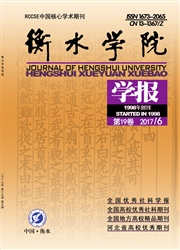

 中文摘要:
中文摘要:
以8 个基因型小黑麦为试验材料,选择NaCl、NaHCO3 为盐碱胁迫因子,研究品种小黑麦对不同浓度混合盐碱胁迫的耐受差异性,采用体积比1:1 配比将NaCl、NaHCO3 配制成梯度混合溶液:25 m mol/L NaCl和25 m mol/L NaHCO3(记作25 + 25)、50 + 25、100 + 50、150 + 50、175 + 100、200 + 100,模拟不同程度混合盐碱土壤,分别测定其种子发芽指数、幼苗的鲜重、苗高、根长、活力指数等相关指标,根据种子萌发和幼苗根部及地上部分生长情况,确定不同基因型小黑麦对盐碱胁迫的抗性差异.结果表明,随着处理浓度的升高,被测小黑麦的生长均受到显著影响,处理浓度越高,影响越显著.但不同品种耐盐碱的能力存在差异.综合分析得出结论,NTH1048 发芽指数和活力指数及幼苗生长明显地高于其他品种,耐盐碱能力较强,适于中等程度盐碱土壤栽培.
 英文摘要:
英文摘要:
Taking 8 triticale varieties as test materials, choosing NaCl, NaHCO3 as saline-alkali stress factors, theinvestigation tries to find out the tolerance difference of triticale varieties in mixed saline-alkali stress with differentconcentration. Taking 1:1 miscible liquids: 25m mol/L NaCl and 25m mol/L NaHCO3(25 + 25); 50 + 25; 100 + 50; 150+ 50; 175 + 100 and 200 + 100, simulating different mixed saline-alkali soil and separately measuring the seedgermination index, weight of fresh seeding, height of seedling, radicle length, vitality index and other related indexes.The resistance difference of different varieties of triticale seeds in saline-alkali stress can be confirmed according to theconditions of seed germination and the growth of the seeding. The test results show that the higher the concentration ofthe liquid, the greater the influence on the triticale growth, but different varieties have different tolerant abilities.NTH1048 seed germination index, vitality index and seeding growth are significantly higher than other varieties, withstronger tolerant ability, which are proper for planting in intermediate saline-alkali soil.
 同期刊论文项目
同期刊论文项目
 同项目期刊论文
同项目期刊论文
 期刊信息
期刊信息
